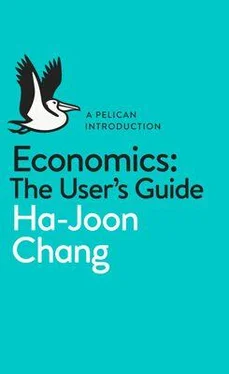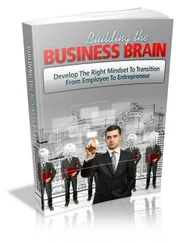Bruce Hood - The Domesticated Brain - A Pelican Introduction (Pelican Books)
Здесь есть возможность читать онлайн «Bruce Hood - The Domesticated Brain - A Pelican Introduction (Pelican Books)» весь текст электронной книги совершенно бесплатно (целиком полную версию без сокращений). В некоторых случаях можно слушать аудио, скачать через торрент в формате fb2 и присутствует краткое содержание. Год выпуска: 2014, ISBN: 2014, Издательство: Penguin Books Ltd, Жанр: Старинная литература, на английском языке. Описание произведения, (предисловие) а так же отзывы посетителей доступны на портале библиотеки ЛибКат.
- Название:The Domesticated Brain: A Pelican Introduction (Pelican Books)
- Автор:
- Издательство:Penguin Books Ltd
- Жанр:
- Год:2014
- ISBN:9780141974873
- Рейтинг книги:4 / 5. Голосов: 1
-
Избранное:Добавить в избранное
- Отзывы:
-
Ваша оценка:
- 80
- 1
- 2
- 3
- 4
- 5
The Domesticated Brain: A Pelican Introduction (Pelican Books): краткое содержание, описание и аннотация
Предлагаем к чтению аннотацию, описание, краткое содержание или предисловие (зависит от того, что написал сам автор книги «The Domesticated Brain: A Pelican Introduction (Pelican Books)»). Если вы не нашли необходимую информацию о книге — напишите в комментариях, мы постараемся отыскать её.
The Domesticated Brain: A Pelican Introduction (Pelican Books) — читать онлайн бесплатно полную книгу (весь текст) целиком
Ниже представлен текст книги, разбитый по страницам. Система сохранения места последней прочитанной страницы, позволяет с удобством читать онлайн бесплатно книгу «The Domesticated Brain: A Pelican Introduction (Pelican Books)», без необходимости каждый раз заново искать на чём Вы остановились. Поставьте закладку, и сможете в любой момент перейти на страницу, на которой закончили чтение.
Интервал:
Закладка:
Eventually, essentialism becomes enshrined in the moral codes that keep people segregated. In biological reasoning, essentialism is a useful way of categorizing the world but it is one that can be easily corrupted by those who have a prejudicial axe to grind. What is remarkable is that humans seem trip-wired to generate these distinctions and hold them without any reasonable evaluation. There is something very automatic about group membership and one of the best examples of this rapid processing is when we suddenly become aware that we have been excluded.
Social death
One day, psychologist Kip Williams from Purdue University was out walking his dog in the park when he was accidentally hit in the back with a Frisbee. He picked it up and flipped it back to the two men who had been playing, and, to his surprise, they tossed it back to Williams. Soon, he found himself enjoying an impromptu game of Frisbee with two strangers. However, this newfound friendship was short-lived. After a minute or two, the two strangers resumed passing it between themselves without any explanation or goodbyes. Williams felt hurt. He had been excluded.
What shocked Williams was his automatic reaction to this innocuous event, the pain of rejection, and how fast it kicked in. It was a humiliating experience but one that gave him a great idea. He went on to develop a computer simulation called Cyberball , where participants play a game in which a ball is tossed back and forth on a screen between two other playmates. Just as in his Frisbee experience, the computer includes the player for varying amounts of time and then unexpectedly excludes the player. At this point, players feel rejected. Not only that, but they feel physically hurt, which registers in the pain centres. 71When adults played Cyberball in a brain scanner and they were excluded, their ACC, the region associated with physical pain, was activated. Their feelings were really hurt. But it also hurts to hurt others. Using the same paradigm, a recent study has shown that being forced to ostracize others is upsetting too. 72People who were instructed to ignore others that they had just been playing with felt bad. We don’t like to be made to ignore others.
Research with Cyberball reveals how easy it is to induce social pain but why should social exclusion be painful? Most pain reactions are to warn the body that damage has taken place or is about to take place. One idea is that social isolation is so damaging that we have evolved mechanisms to register when we are in danger of being ostracized. 73This registers as pain to trigger a set of coping mechanisms to reinstate ourselves back into the social situation that threatens to expel us. As soon as it becomes clear that we are in danger of being ostracized, we activate social ingratiating strategies. We become extra helpful, going out of our way to curry favour with individuals within the group. We can become obsequious, agreeing and sucking up to others even when they are clearly in the wrong.
This is the initial response to ostracism, but if the reintegrating strategies fail, then a much more sinister, darker set of behaviours can appear. For many, the attempts to rejoin the group are replaced by aggression against the group. This aggression has been studied experimentally in a version of Milgram’s shock experiment where participants believed that they were administering painful noise. Participants were asked to select an initial level of noise that ranged from 0dB to 110dB to be administered to other subjects. Prior to making their selection, they were told that increasing levels were more uncomfortable and 110dB was the maximum level. When some subjects, who in reality were experimenter confederates, rejected the real participant in a sham ostracism scenario prior to the test, he or she wreaked revenge by administering more painful sound bursts in retaliation to the others. 74If the participant did not perceive the others as a group, they administered lower painful bursts.
Sometimes victims can be entirely innocent. In another ostracism experiment, rejected individuals spiked the food of the next participant in the study with unpleasant hot sauce even when they knew they were innocent. 75It is the experimental equivalent of the displacement aggression when someone kicks their dog out of spite when things have gone wrong elsewhere in their lives. For many, aggression seems to be a way of getting back at an unjust world when they feel they have been injured by the thoughts and actions of others. For a few, this impulse towards revenge can be taken to the ultimate extreme.
The ultimate act of spite
Oh the happiness I could have had mingling among you hedonists, being counted as one of you, only if you did not fuck the living shit out of me … Ask yourself what you did to me to have made me clean the slate.’
Cho Seung-Hui’s ‘manifesto’, describing his subsequent
shooting rampage at Virginia Tech University
For many, the worst thing in the world is being rejected by others – kicked out, cut off, blackballed, sent to Coventry, unfriended. It doesn’t matter how it is done. They are all ways of being ostracized. To be excluded by others is psychological death.
Exclusion is also a form of non-physical bullying, and it can sometimes have devastating consequences. In the US, the Center for Disease Control has estimated that around 4,600 children between the ages of ten and fourteen years commit suicide every year. 76Teenage bullying is associated with depression, loneliness and suicidal thoughts. 77Although the direct link between bullying and suicide remains to be established, contemplating killing oneself is considered a major risk factor. It is not always the physical aspects of bullying that are so detrimental, but rather the social exclusion that it usually entails. A Dutch study of nearly 4,811 schoolchildren aged between nine and thirteen years of age found that social isolation was more harmful than physical violence for both boys and girls. 78Given the choice, teenagers would rather be hit than excluded as those who had experienced both forms of bullying reported that social aggression made them feel worse. 79What makes these findings all the more shocking is that many teachers do not regard social exclusion as being as bad as physical bullying. In other words, not only is it difficult to monitor or police because it may go on largely unnoticed by teachers, but they can also be more tolerant of it. 80
Rejection can also be accompanied by that other toxic thought, humiliation – ridicule and mocking by the group. No one can easily tolerate the public destruction of one’s self worth, because that would make life worthless. When people feel they have been humiliated, some will wreak terrible revenge. If they do not turn the aggression in on themselves with suicide, a few will direct it back at others. They ‘go postal’ – a reference to the spate of US postal workers who murdered former colleagues in rampages during the 1990s.
Rampage killings are the consequences of social rejection taken to the ultimate extreme. One analysis 81of school mass shootings such as Virginia Tech and Columbine revealed that in thirteen out of the fifteen cases, the perpetrators had been socially excluded, as illustrated so shockingly in the quote from the Virginia Tech manifesto. Others simply try to hurt society as much as possible. In the Dunblane school massacre, Thomas Hamilton targeted the most innocent victims – children – as retribution against the adults who questioned his suitability as a Scout troop leader in charge of children. In letters to the press, the BBC and even the Queen, he spelled out his resentment at his dismissal from the Scouts, which had festered for twenty-five years amidst rumours and accusations that he was a pervert, leading to his ridicule by the community. We do not yet know enough about the Sandy Hook atrocity of 2012, but gunman Adam Lanza clearly acted to inflict as much suffering as possible, and again on children. What sort of disturbed individuals could care so little about the hurt they brought to others?
Читать дальшеИнтервал:
Закладка:
Похожие книги на «The Domesticated Brain: A Pelican Introduction (Pelican Books)»
Представляем Вашему вниманию похожие книги на «The Domesticated Brain: A Pelican Introduction (Pelican Books)» списком для выбора. Мы отобрали схожую по названию и смыслу литературу в надежде предоставить читателям больше вариантов отыскать новые, интересные, ещё непрочитанные произведения.
Обсуждение, отзывы о книге «The Domesticated Brain: A Pelican Introduction (Pelican Books)» и просто собственные мнения читателей. Оставьте ваши комментарии, напишите, что Вы думаете о произведении, его смысле или главных героях. Укажите что конкретно понравилось, а что нет, и почему Вы так считаете.











